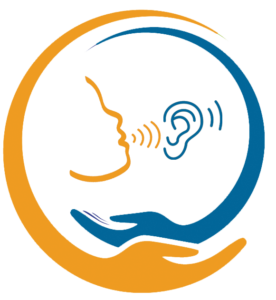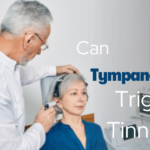Envision a world devoid of the serene sounds of nature, the comforting melodies of your favorite tunes, or the delight of hearing the voices of your dear ones. This stark reality confronts millions worldwide grappling with tinnitus, a condition marked by persistent ear noises, such as ringing, buzzing, or hissing.
Tinnitus, the enduring perception of ringing or buzzing in the ears, can be a distressing ailment affecting multitudes across the globe. While its causative factors are multifaceted, a compelling realm of inquiry has surfaced, proposing a potential association between tinnitus and tympanometry. Tympanometry, a diagnostic examination gauging the eardrum’s responsiveness to fluctuations in air pressure, traditionally employed to evaluate middle ear functionality, has recently been investigated for its plausible role in inciting tinnitus in susceptible individuals.
Can Tympanometry Trigger Tinnitus?
Discover the Tympanometry-Tinnitus Connection Today!
Amidst the myriad triggers of tinnitus, within this comprehensive discourse, we shall delve into ‘The Astonishing Revelation: How might Tympanometry Trigger Tinnitus.’
What Constitutes Tympanometry?
Tympanometry, commonly denoted as a ‘tympanogram,’ constitutes a brief, painless auditory assessment. It scrutinizes the well-being and performance of the middle ear, specifically the eardrum and the three diminutive ear ossicles responsible for transmitting sound to the inner ear. In essence, it quantifies the ear’s sound conduction and regulates the middle ear’s pressure.
The Role of Tympanometry
Tympanometry is an invaluable tool for professionals in audiology, including individuals like myself. It serves as a diagnostic instrument for various ear conditions, encompassing middle ear infections (otitis media), eustachian tube dysfunction, and even hearing impairment. Analyzing the outcomes of a tympanogram furnishes insights into the ear’s condition, thereby facilitating informed decisions regarding treatment.
Understanding Tinnitus
Prior to investigating the link between Tympanometry and Tinnitus, it is imperative to grasp the essence of Tinnitus. Tinnitus is not a malady but a symptom characterized by the perception of auditory sensations within the ears, even in the absence of external acoustic stimuli. These sensations can manifest as ringing, buzzing, hissing, or, at times, even roaring.
The Surprising Link or The Connection Between Tympanometry and Tinnitus
Eardrum Discomfort
One of the primary connections between Tympanometry and tinnitus relates to the physical discomfort that certain patients may encounter during the examination. The sensation of pressure fluctuations within the ear canal can be disconcerting, and this discomfort might inadvertently contribute to an escalation in tinnitus symptoms. It is crucial for audiologists to be mindful of this potential impact, particularly when dealing with patients who are already predisposed to tinnitus.
Eustachian Tube Dysfunction
Another intriguing correlation between Tympanometry and tinnitus can be found in the test’s capability to identify issues with the Eustachian tube. This condition involves difficulties in equalizing pressure between the middle ear and the throat. Individuals with Eustachian tube dysfunction are more prone to experiencing tinnitus, and Tympanometry can unveil this dysfunction, potentially shedding light on the association between the test and tinnitus.
How Can Tympanometry Trigger Tinnitus?
While tinnitus often arises due to factors such as age, exposure to loud noises, or underlying health conditions, a compelling question has emerged in recent years: can Tympanometry, a diagnostic assessment for ear health, serve as a trigger or exacerbating factor for tinnitus? Let’s explore How can Tympanometry Trigger Tinnitus,
The Acoustic Reflex
Tympanometry entails the introduction of sound into the ear canal and the monitoring of the eardrum’s response. In some instances, the introduction of sound, particularly at higher volumes, can stimulate the acoustic reflex. This reflex is a natural defense mechanism that diminishes the impact of loud sounds. When activated, the muscles in the middle ear contract to reduce the transmission of sound to the inner ear.
Tinnitus and the Acoustic Reflex
For certain individuals, the activation of the acoustic reflex during Tympanometry can lead to tinnitus. The sudden contraction of the middle ear muscles can induce a temporary alteration in the auditory system, resulting in a ringing or buzzing sensation in the ears. While this effect is generally brief, in some cases, it can persist and develop into chronic tinnitus.
Individual Variability
It’s important to emphasize that not everyone is susceptible to Tympanometry Trigger Tinnitus. Individual differences play a significant role. Some may experience it after their first tympanogram, while others may undergo numerous tests without any issues.
𝐼𝑓 𝑦𝑜𝑢’𝑟𝑒 𝑙𝑜𝑜𝑘𝑖𝑛𝑔 𝑓𝑜𝑟 𝑎 𝐵𝑒𝑠𝑡 𝐻𝑒𝑎𝑟𝑖𝑛𝑔 𝑎𝑖𝑑 𝐶𝑙𝑖𝑛𝑖𝑐 𝑓𝑜𝑟 𝑦𝑜𝑢 𝑜𝑟 𝐻𝑒𝑎𝑟𝑖𝑛𝑔 𝑖𝑚𝑝𝑎𝑖𝑟𝑚𝑒𝑛𝑡 𝑠𝑒𝑟𝑣𝑖𝑐𝑒 𝑖𝑛 𝐾𝑜𝑙𝑘𝑎𝑡𝑎, 𝑡ℎ𝑒𝑛 𝐴𝑢𝑟𝑎𝑙𝑐𝑎𝑟𝑒 𝑖𝑠 𝑡ℎ𝑒 𝑟𝑖𝑔ℎ𝑡 𝑝𝑙𝑎𝑐𝑒 𝑓𝑜𝑟 𝑦𝑜𝑢!
Exploring the Science
Neural Plasticity
To comprehend this phenomenon, we must explore the concept of neural plasticity. Our brains are remarkably adaptable, and they can rewire themselves in response to various stimuli. When Tympanometry Trigger Tinnitus, it may be a result of the brain’s response to the sudden change in auditory input.
The Brain’s Response to Acoustic Reflex Activation
When the acoustic reflex is triggered in the context of tympanometry, the brain may perceive it as an unexpected auditory stimulus. Consequently, this may lead to the emergence of tinnitus, illustrating how the brain’s adaptability can, at times, result in unintended consequences.
Addressing Tinnitus in Tympanometry Patients
For individuals already dealing with tinnitus who are about to undergo a Tympanometry examination, there may be concerns. To minimize potential disruptions, audiologists can employ several strategies:
Patient Education
Providing patients with comprehensive information about the Tympanometry procedure and its possible discomfort is crucial. By managing expectations and explaining the importance of the test, it is possible to reduce anxiety and stress, thus potentially mitigating the impact on tinnitus.
Enhancing Comfort
Audiologists can take steps to enhance the overall comfort of the Tympanometry experience for the patient. This could involve adjusting the testing parameters or utilizing relaxation techniques to alleviate anxiety.
Post-Test Monitoring
After the Tympanometry assessment, it becomes essential to closely monitor the patient’s tinnitus symptoms. If an increase in tinnitus is detected, appropriate measures can be implemented to address and manage the condition.
In the field of audiology, where our primary goal is to enhance the quality of life for individuals dealing with hearing challenges, the unexpected relationship between tympanometry and tinnitus poses intriguing questions. While there is a potential risk, it’s essential not to underestimate the advantages of this diagnostic tool. As we persist in exploring this phenomenon, our dedication to providing top-tier care to our patients remains resolute.
In conclusion, the surprising truth about how Tympanometry Trigger Tinnitus is an area of audiology that warrants further investigation and understanding. While Tympanometry continues to serve as a valuable tool for diagnosing middle ear conditions, its capacity to influence individuals prone to tinnitus cannot be dismissed. Audiologists play a pivotal role in ensuring their patients are well-informed and at ease during the Tympanometry procedure, thereby mitigating any potential adverse effects on their tinnitus. By delving deeper into this connection, we can better cater to those with tinnitus and further enhance our grasp of this intricate condition.
It is imperative to obtain professional help when addressing any concerns pertaining to ear health and hearing. Aural Care is the top choice in Kolkata for anyone looking for the best hearing aid clinic in the area. We are dedicated to offering a comprehensive range of services, including audiometry, tympanometry, and Bera, among others, to make sure that every patient receives individualized treatment and solutions catered to their particular needs. We have a team of highly qualified audiologists and state-of-the-art technology. Aural Care is the go-to option for all of your auditory healthcare requirements in Kolkata because it combines competence and compassion, so you can feel certain that your hearing health is in good hands.
FAQs
1. Is Tympanometry a potential cause of permanent Tinnitus?
A- Tympanometry generally does not result in permanent Tinnitus. In some instances, it may temporarily exacerbate pre-existing Tinnitus, but such effects are typically reversible.
2. How can I minimize the impact of Tympanometry on my Tinnitus?
A- To reduce the risk of Tympanometry worsening Tinnitus, it is advisable to inform your audiologist about your condition. They can take necessary precautions to mitigate any potential issues.
3. Can Tinnitus be effectively treated?
A- Yes, Tinnitus is a treatable condition. Various management strategies, including sound therapy and counseling, can assist individuals in managing and alleviating their Tinnitus symptoms.
4. Is it possible for Tinnitus to subside naturally?
A- Tinnitus may improve or resolve spontaneously in certain cases. However, it is crucial to seek guidance from a healthcare professional for an accurate diagnosis and appropriate treatment.
5. Are there alternative diagnostic approaches for middle ear disorders apart from Tympanometry?
A- Indeed, alternative diagnostic methods like audiometry and imaging can assess middle ear disorders without the risk of exacerbating Tinnitus. Your audiologist will determine the most suitable approach for your specific case.
6. Can Tympanometry induce Tinnitus in everyone?
A- No, not everyone is equally susceptible to Tinnitus triggered by Tympanometry. Individual differences play a significant role, and while some may experience it, others may not.
7. How can I minimize the potential for Tinnitus during Tympanometry?
A- Audiologists are actively working to reduce the risk of Tinnitus triggered by Tympanometry by utilizing lower sound levels during the test and closely monitoring patients for any signs of Tinnitus following the procedure.
8. Should I avoid Tympanometry if I have concerns about Tinnitus?
A- If you have reservations regarding Tinnitus triggered by Tympanometry, it is advisable to discuss them with your audiologist. They can provide information about potential risks and assist you in making an informed decision about whether to proceed with the test.
9. What are the available options for managing Tinnitus?
A- Management options for Tinnitus encompass counseling, sound therapy, and various techniques to help individuals cope with the distressing sounds. Audiologists can offer guidance and support to those affected by Tinnitus.
About Aural Care

Aural Care is the Best Hearing Aid Clinic in Kolkata offering high quality facilities with lots of experienced doctors. We have 15 years experience in this field. Here, we offer the most comprehensive diagnostic facilities and the latest and best technology in hearing aids.
- Address: GB7, 822, Rajdanga Main Road . Opp. GST Bhawan. Kol 700107
- Phone: +91 98315 37979
- Mail: info@auralcarekolkata.in
Follow us
- Facebook: facebook.com/AuralCareCenterKolkata
- Instagram: instagram.com/auralcarecenter

